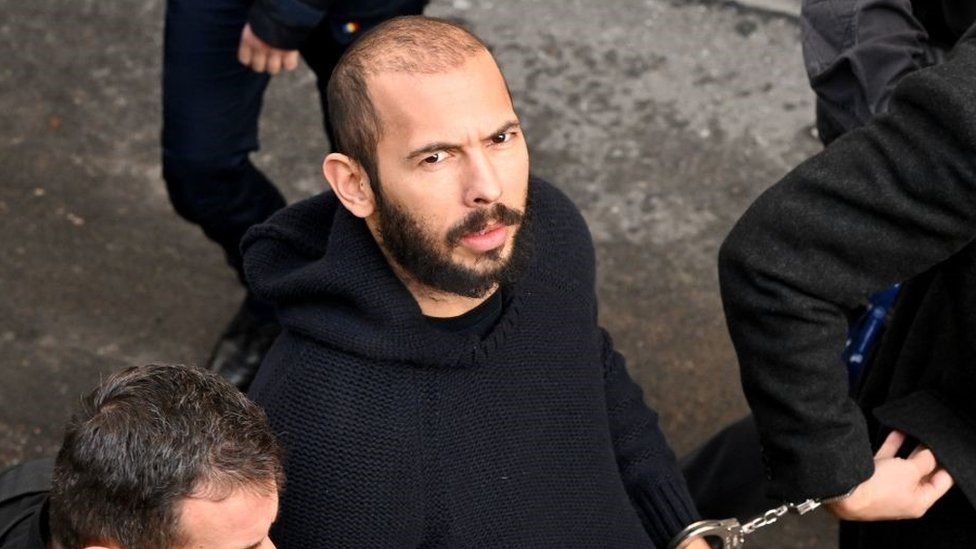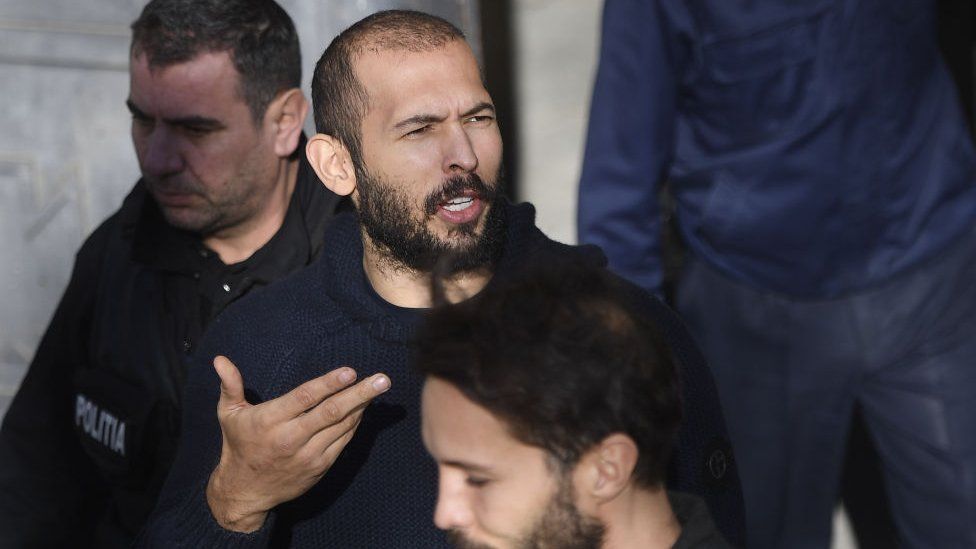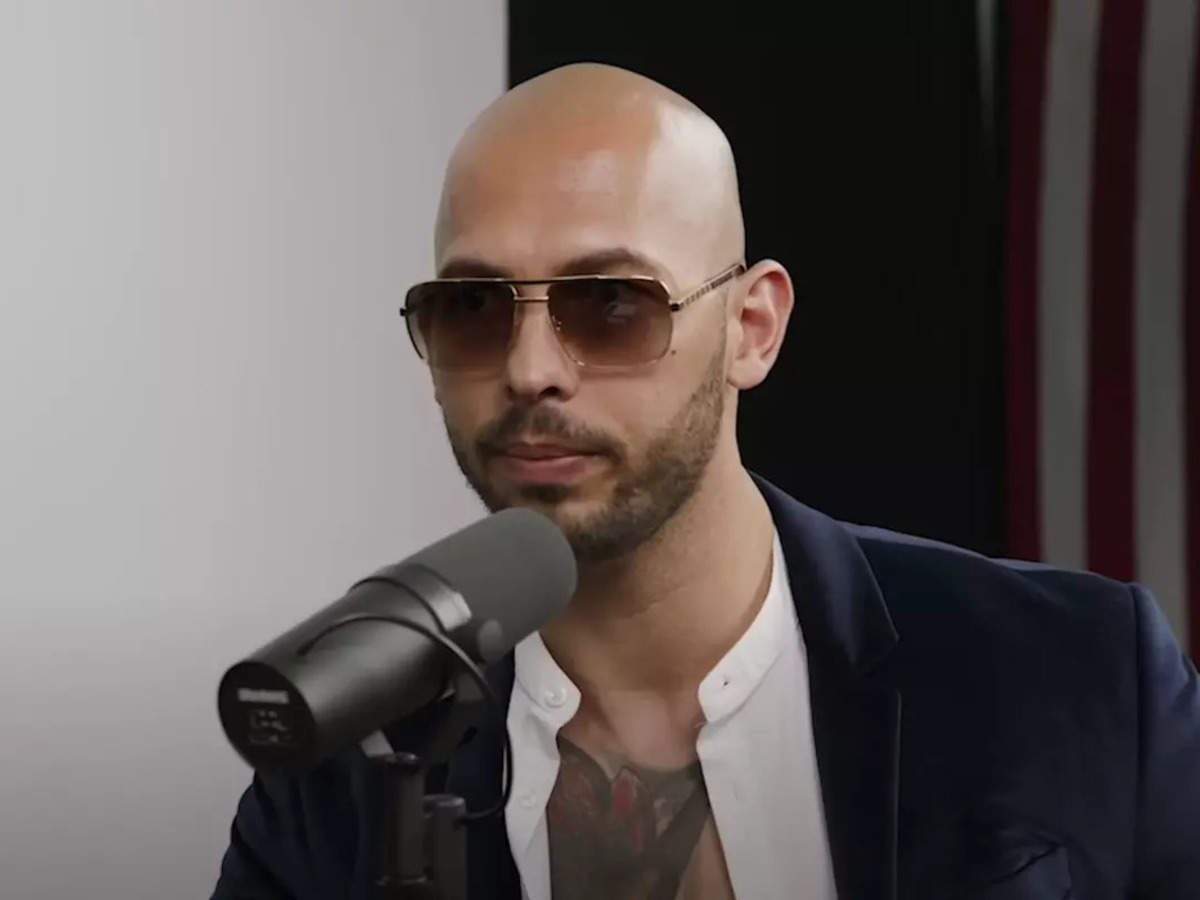The Andrew Tate Case: Complexities of Romania's Justice System
Romania's Justice System and the Andrew Tate Case:
The recent detention and house imprisonment of Andrew Tate, a British kickboxer and internet star, in Romania has sparked concerns about the country's court system and how it handles with foreigners convicted of crimes.
Tate was arrested in late March 2023 on suspicion of assault, violence, and property damage. He was charged with assaulting a group of guys in a Bucharest nightclub, breaking one man's nose and causing damage to a car in the parking lot. Tate contested the charges, stating he acted in self-defense.
Tate was arrested and transferred to a prison centre in Bucharest, where he remained for several days until being released on house arrest. He is currently residing in a city flat, where he must remain until his trial. He might face up to five years in prison if convicted.
The case has aroused debate in Romania, with some claiming that Tate is being treated unfairly because of his notoriety. Others have expressed reservations about the country's detention and house arrest systems, which they claim are frequently exploited by officials.
Suspects in Romania can be detained for up to 24 hours without a court order and up to 30 days with one. They can then be put under home arrest for up to 180 days. They are not permitted to leave their residence without authorization during that time, and they must wear an electronic monitoring device at all times.
Opponents claim that the system is frequently utilised to keep defendants in custody for longer than required, and that house arrest is sometimes employed as a form of punishment prior to a trial. They claim that this undermines the right to a fair trial and the presumption of innocent.
Supporters of the system, on the other hand, argue that it is important to ensure that suspects do not flee the country or interfere with the inquiry. They further claim that house arrest is a more compassionate option to detention since it allows defendants to stay with their family and, if feasible, continue working.
The Andrew Tate case has focused attention on Romania's legal system and the difficulties it has in reconciling suspect rights with the need to preserve peace and order. It remains to be seen how the case will be decided, but it is apparent that the debate in Romania over detention and house arrest will continue for some time.
In general, the Andrew Tate case raises concerns regarding the handling of foreigners in Romanian courts. Foreign nationals are frequently treated unfairly, according to critics, and there is a perception of bias against them. This is especially important in circumstances when the accused does not know Romanian and may be confused about their legal rights and the charges against them.
Concerns have also been raised regarding conditions in Romanian detention centres and prisons, with reports of overcrowding, poor sanitation, and insufficient medical care. The European Court of Human Rights has regularly condemned Romania's treatment of inmates and directed the country to take corrective action.
Supporters of the Romanian legal system, on the other hand, say that the system is working to address these shortcomings and that progress is being made. They highlight recent improvements aimed at minimising pre-trial detention, improving jail conditions, and ensuring suspects are handled properly and given due process.
Furthermore, the Andrew Tate case is just one example of the difficulties that Romania's legal system is facing. It serves as a reminder of the importance of continual reform and progress in order to ensure that justice is served and that the rights of all suspects, regardless of country or celebrity status, are protected.
The case also demonstrates the impact of social media on popular perceptions of the justice system. Andrew Tate has a sizable social media following, and his followers have been quick to protect him and attack Romanian officials. Others have claimed that Tate was targeted by the authorities because of his outspoken beliefs and refusal to conform to established social norms.
Critics, on the other hand, have pointed out that social media can be used to disseminate misinformation and misrepresent the facts of a case. They argue that it is critical to wait for the trial outcomes before making conclusions about Tate's guilt or innocence.
The case also highlights larger concerns about the use of imprisonment and house arrest as punishment. While these tactics can be useful in keeping suspects from leaving or interfering with investigations, they can also be viewed as a breach of civil freedoms, especially if employed excessively or without due reason.
Finally, the Andrew Tate case in Romania has highlighted a number of concerns confronting the court system, including as the treatment of foreigners, conditions in detention centres and prisons, and the role of social media in affecting public impressions of the legal process.
The case has highlighted the necessity for continual reform and development in the legal system to guarantee that justice is served and that all suspects' rights are safeguarded, regardless of their nationality or celebrity status. While there are legitimate complaints of the system, it is critical to recognise the efforts being made to solve these flaws and work towards a fair and just system that upholds the rule of law.
At the same time, it is critical to acknowledge the intricacies of the case and avoid jumping to conclusions before all of the information has been presented in court. Social media and other kinds of communication can help raise attention to issues of justice and human rights, but they can also propagate misinformation and affect public opinion in ways that are not always fair or truthful.
Finally, the Andrew Tate case serves as a reminder of the necessity of protecting all persons' rights, as well as the need for an effective and open justice system that fulfils society's requirements while upholding the fundamental values of justice and human rights.









No comments